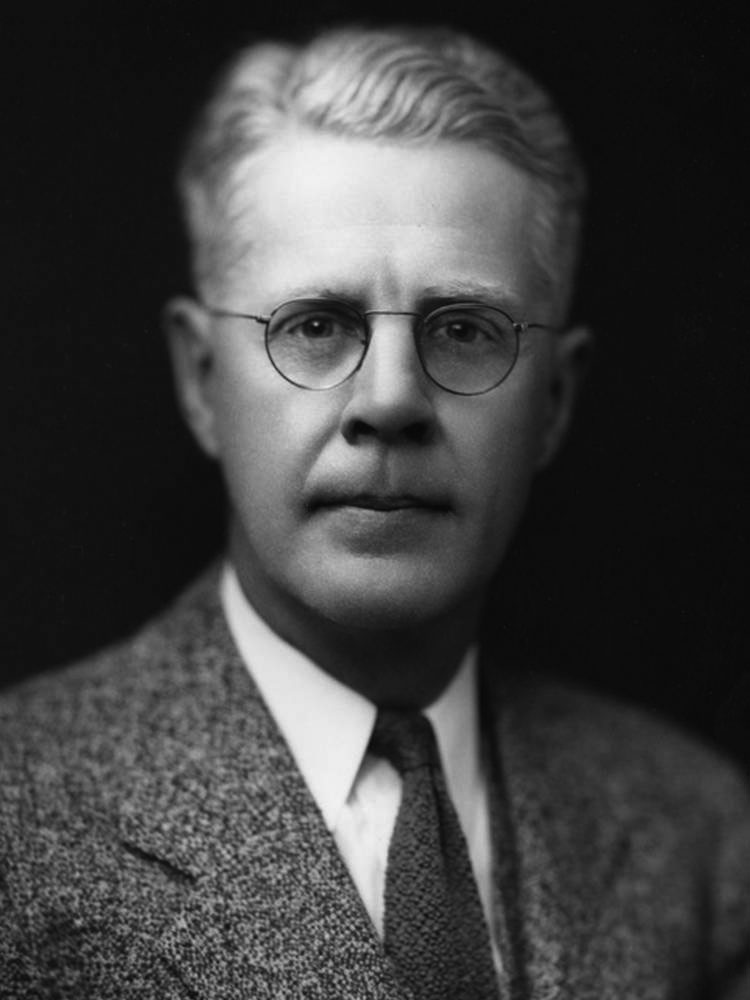
Chancellorship Dates
July 1, 1938 - July 31, 1946
DEGREES
- B.A., University of Michigan, 1909
- M.A., University of Michigan
- Ph.D., University of Michigan
BORN
June 14, 1886 - Chicago, Illinois
DIED
August 13, 1955 - Petoskey, Michigan
INTERMENT
Brookside Cemetery, Charlevoix, Michigan
SOURCES
- "Prairie University," Robert E. Knoll
In 1938, a committee of the Board of Regents—acting after Edgar Burnett had announced his retirement—selected Chauncey S. Boucher, the president of West Virginia University, as the next chancellor of the University of Nebraska. Boucher was a noted academic, a professor of American History with an emphasis on the antebellum South and its economic and cultural dependence on slavery, whose experience included stints at the universities of Washington, Texas, Michigan, Ohio State, Wisconsin and Chicago. In 1926, at the University of Chicago, he assumed his first administrative role, ascending at age 40 to the deanship of the College of Arts, Literature and Science. In 1935, he was selected as President of West Virginia University in 1935., and in June of 1938, the Regents, meeting in private with four candidates, decided on Boucher as Burnett's replacement as chancellor of the University of Nebraska.
Ever the reformer, Boucher had appointed faculty committees both on educational policy, practice and research by the spring of 1938. He had steered the Alumni Association from independence to university subsidiary. Still, he was not interested in public leadership, certainly not in the statewide leadership role of chancellor that had been so ably pioneered decades earlier by Canfield. Instead, Boucher often holed up in his office. He did not move to dissolve the football program, which under coach Biff Jones would reach the Rose Bowl in 1941 (World War II nearly had the effect of dissolution anyway, and the program didn't return to prominence until the early 1960s).
Boucher, of course, took office toward the end of the Great Depression, and no investigation of his (or Burnett's) history in the role of chancellor can ignore the context. The University of Nebraska had historically thrown its doors open to all, but nearly forty percent of incoming freshman weren't capable of college-level work and would wash out in their first year. Under Boucher, admissions standards were instituted in the name of efficiency.
Across the oceans, war was again brewing, and the University of Nebraska was just one of the small pieces in the disorder of the period. The new, unoccupied Love Library was offered as a wartime training barracks, and the 2,400 troops stationed there used the Nebraska Union as a mess hall. Enrollment in academic courses declined during the duration of the war.
In early 1945, as it became clear that the Allied advances in the Pacific and in Europe were unstoppable, planning turned toward the postwar university. In an environment of newfound prosperity in the state, Boucher and Board of Regents made a budget request to the state legislature that was straight out of the privations of the previous 15 years. A faculty committee prepared its own budget and Boucher acquiesced, supporting it, indeed speaking last at the presentation.
Amid all this tumult, Boucher would submit his resignation letter, confidentially, to the Board. The day following the Appropriations Committee presentation, the Daily Nebraskan noted that a search had begun for a new chancellor.